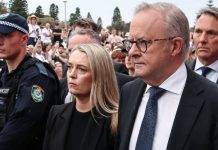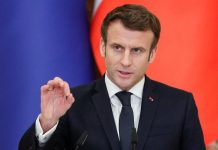DM Monitoring
JERUSALEM: Israeli Prime Minister Naftali Bennett warned world leaders of returning to the nuclear agreement during his first cabinet meeting held earlier this week, referring to Iran’s president-elect Ebrahim Raisi as a hardliner.
“Raisi’s election is, I would say, the last chance for the world powers to wake up before returning to the nuclear agreement … (Iran) must never be allowed to have weapons of mass destruction,” he said in Jerusalem.
In recent weeks, world powers have been engaged in talks to revive the 2015 Iran nuclear agreement, formally known as the Joint Comprehensive Plan of Action (JCPOA). The original deal gave Iran sanctions relief in return for restrictions on its nuclear program.
Considering Iran as an arch-enemy, Israel had strongly opposed the deal. In 2018, former U.S. President Donald Trump’s decision to withdraw the United States from the deal was satisfactory to Israel. While Iran has repeatedly said its nuclear aspirations are not for military purposes, the reprieve it received allowed it to progress with the program.
Israel has vowed to prevent Iran from obtaining nuclear weapons. In recent years, it is believed Israel has been behind attacks targeting Iranian nuclear plants and weapon convoys throughout the Middle East. For most attacks, Israel has not commented on its role. In a recent TV interview, the outgoing Mossad intelligence chief alluded his country was behind several attacks.
Reports from Iran on Sunday said the country’s nuclear power plant was shut down due to an emergency, and the untold cause further raised speculation.
As the sixth round of talks ended in Vienna seems to be headed to a conclusion with a new agreement, Israel is faced with a dilemma.
“For Israel, no deal is better than any deal with Iran. But the alternative policy that Israel advocates for, huge pressure and no talks, was tested during the Trump administration and amounted to an abject failure,” said Ali Vaez, Iran Project Director at the Crisis Group.
Headed by a new government, Israel will be likely to handle its disagreement with the United States behind closed doors.
During his first phone conversation with Bennett, U.S. President Joe Biden said both sides “would consult closely on all matters related to regional security, including Iran.”
“Israel is very concerned about how the agreement is going to look like,” said Or Rabinowitz, an expert on nuclear proliferation at the Hebrew University in Jerusalem. “Israel is trying to create communication channels with the Biden administration and explain its fundamental concerns.”




